URBAN HOUSING CRISIS PART 1
Bad to worse — massive gap in rightful housing and basic service delivery for Joburg’s inner city low-income residents
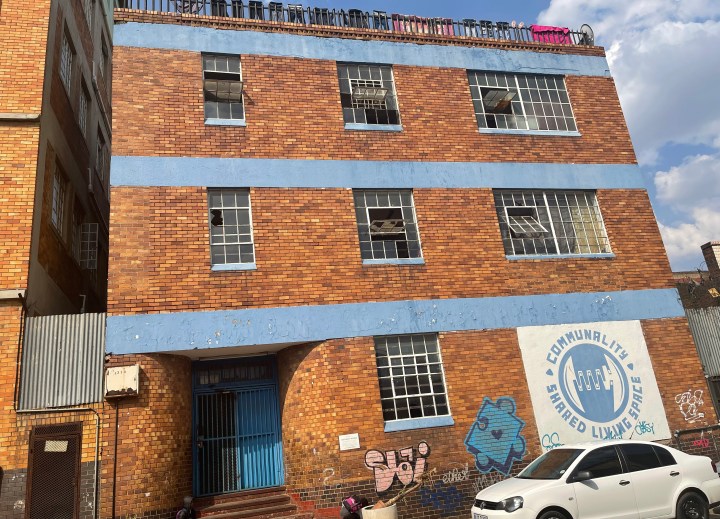
Housing shortages are one of the biggest problems faced by the underprivileged in Johannesburg — fuelled by rapid population growth. The City of Johannesburg is facing a 500,000-strong housing backlog, with at least 100,000 people living homeless and 134 buildings illegally occupied, according to the city’s last count five years ago.
For years, the Johannesburg inner city has been characterised by overcrowding and dilapidated infrastructure that has been a headache for city managers. Many buildings are residential apartments, condemned by the city. Criminals have moved in and taken over from absentee owners, or owners who gave up on earning rentals off their assets. Many condemned buildings are illegally occupied by people who can’t afford to pay rent elsewhere in the city.
According to the City of Johannesburg, “abandoned” refers to owners that cannot be traced by the city, no proper management or maintenance is in place, and the condition of the building poses a health and safety risk to occupants and the general public alike. “Hijacked” means the occupiers are neither owners nor authorised agents and the occupation is considered illegal. The owner of the property would also need to supply proof of such in the form of a court order.
Speaking to eNCA in August 2022, Lucky Sindane, spokesperson for the city of Joburg’s Group Forensic and Investigation Services unit, said the city had managed to reclaim 50 hijacked buildings and returned them to their rightful owners.
Nevertheless, due to a lack of affordable and decent housing options in the inner city of Johannesburg, abandoned or hijacked buildings have become homes and refuges for many vulnerable groups.
Life inside ‘hijacked’ buildings
Inside these abandoned or hijacked buildings, makeshift boards and curtains divide the space where the occupants live. Both South African and foreign nationals live in these precarious buildings — crowded, without electricity, water supply or sanitation.
Some live rent-free with no services while others pay exorbitant rent and bribes to slumlords, who impose themselves as rightful owners of a property — usually through intimidation and violence.
The Inner City Federation (ICF) — a civil society organisation in the city — currently represents residents in more than 50 of these “abandoned or hijacked buildings” to legally fight off evictions.
Over the years, ICF in partnership with Seri — a non-profit human rights organisation — has helped “poor” inner-city residents resist eviction, harassment and displacement, by establishing and maintaining effective self-management structures in dilapidated inner-city buildings while collectively mobilising residents to advocate for decent housing.
ICF General Secretary Siyabonga Mahlangu told Daily Maverick that in the many years they have been helping inner-city residents advocate for decent housing, basic services and challenging stigmas associated with low-income inner-city residents, “there has been no positive change”.
“Residents have been constantly harassed in their homes and their rights disregarded,” he said.
Daily Maverick met some of the inner city residents to confirm some of the issues they face. Nqobile Zulu, who lives at the Express building located at 44 Nugget Street, downtown Johannesburg said:
“All of the occupiers at the Express building including myself are poor and desperate. Many of us…. survive on waste picking, which doesn’t make us much money to afford decent housing… or even our daily bread. We do not know of any alternate accommodation which is lawful and affordable to us.
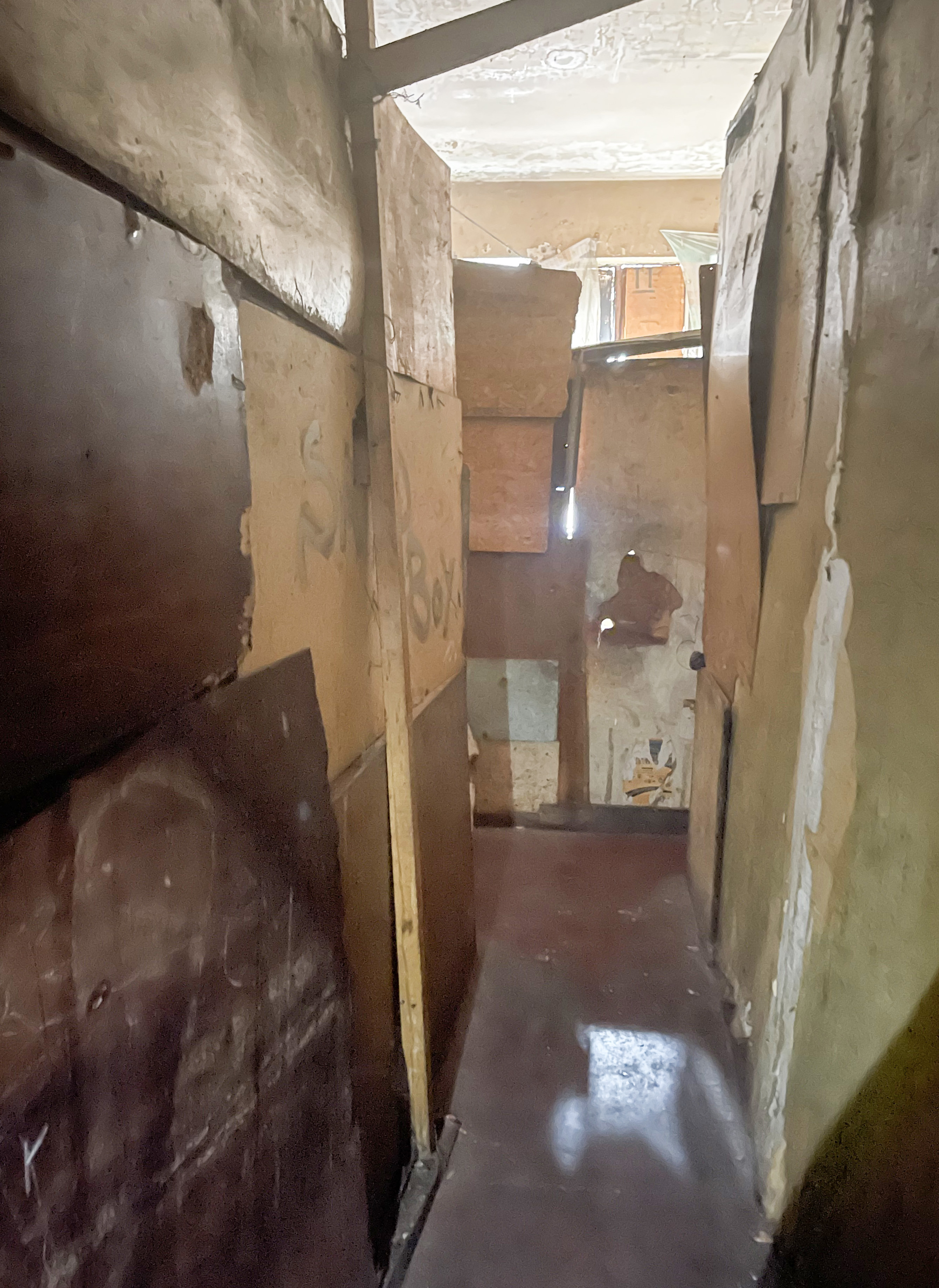
Makeshift boards and curtains divide the space where a community of more than 200 waste pickers reside in the Express building in Nugget Street. The occupants are both South African and foreign nationals. (Photo: Michelle Banda)
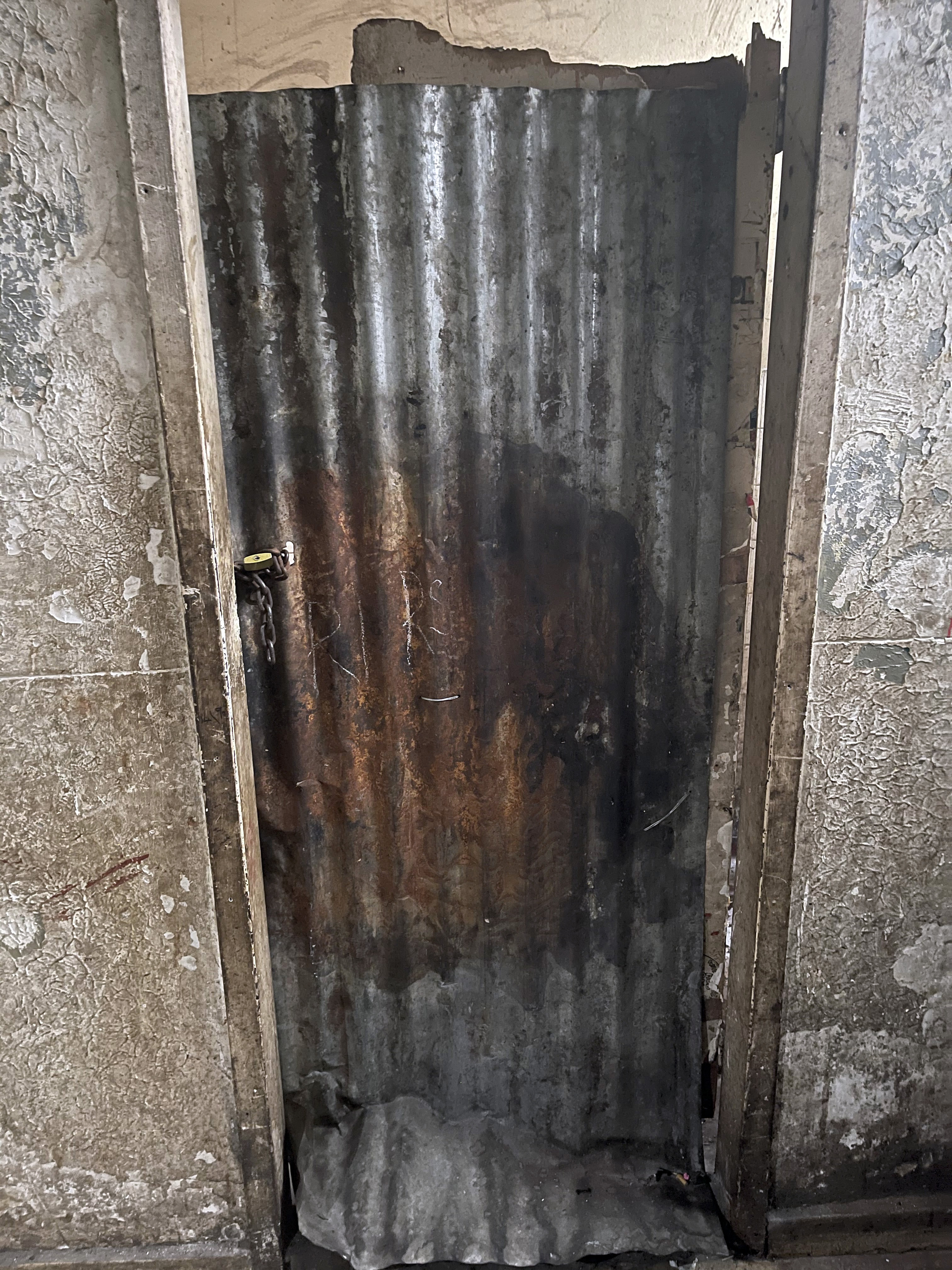
What used to be a toilet in the Express building is now a locked room. Occupants survive in the building with overcrowding and a lack of electricity, water supply and sanitation. (Photo: Michelle Banda)
“The rents are exorbitant and as a result, we find ourselves in unlawful occupation of a derelict building without running water, electricity or toilets. We also live in fear of eviction… If we were evicted from the property, we would have no shelter at all.”
The building where Zulu lives is one of many which have been abandoned for years and needs urgent repairs and basic services. The building houses approximately 200 waste pickers who told Daily Maverick they have faced threats of eviction for years from the City of Johannesburg and various people claiming to be the lawful owners of the building. Many of the occupiers have lived there for more than 10 years.
‘City of Johannesburg does not care about us or our basic service needs’
Occupants of Manhattan Court on 43 Plein street and the communal living space at 58 Aureta street, Jeppestown, face similar service delivery challenges.
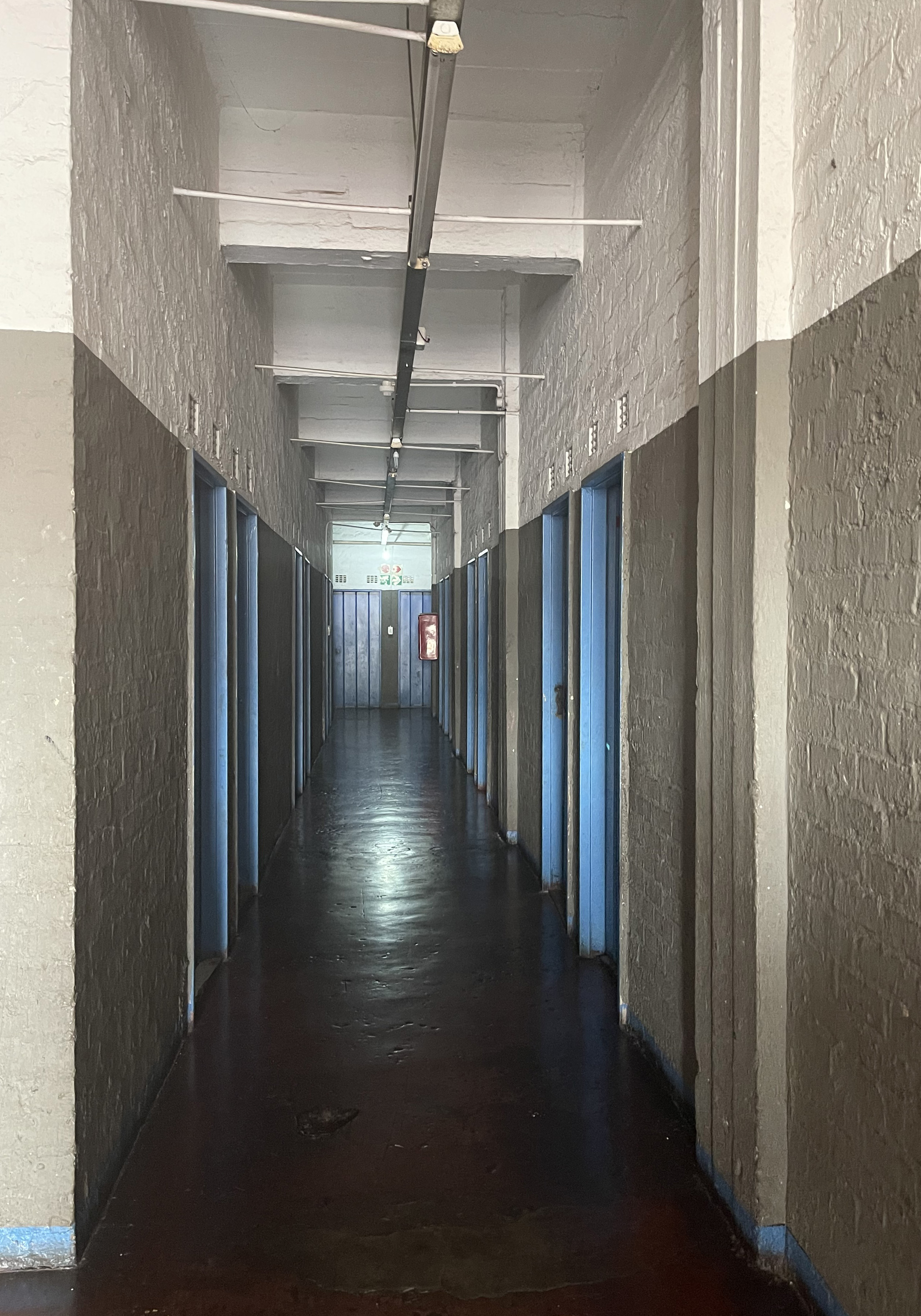
Residents in a privately owned apartment in Jeppestown say they have taken it upon themselves to clean their building and do general upkeep despite paying rent and for services they barely get. (Photo: Michelle Banda)
Nomalungelo Qwele, originally from the Eastern Cape, has lived at Manhattan Court since 1996. She says people living there have never received services from the city, despite the flat being government property.
“The city does not care about us or our basic services needs… we pay rent directly to the city and for services such as water, refuse and electricity to the respective service providers.… [however] we have garbage mounting and burst sewers doubling as toilets and that’s normal for us,” said Qwele.
“When we ask the city for maintenance and refuse services we are ignored, so we take it upon ourselves to make sure that we resolve anything and everything. We are the poor of the poorest who were given this building because we had nowhere to go and our rentals and service expenses were subsidised so at least we have decent homes.”
Qwele said in the same building, they continue to face illegal threats of eviction from various individuals who claimed to own the building, yet failed to produce any ownership documentation when cases went to court.
“Continuously having to fight for what is rightfully ours is daunting and a cause of heartache especially at this old age that we are in. But then again we have no other choice.
“We have taken these units in the building as our own RDP homes because the building is subsidised and our names are registered… Because of the subsidy, we are not eligible for RDP homes… All we want is for the city to give us services so we can enjoy our full rights as prescribed in the Constitution.”
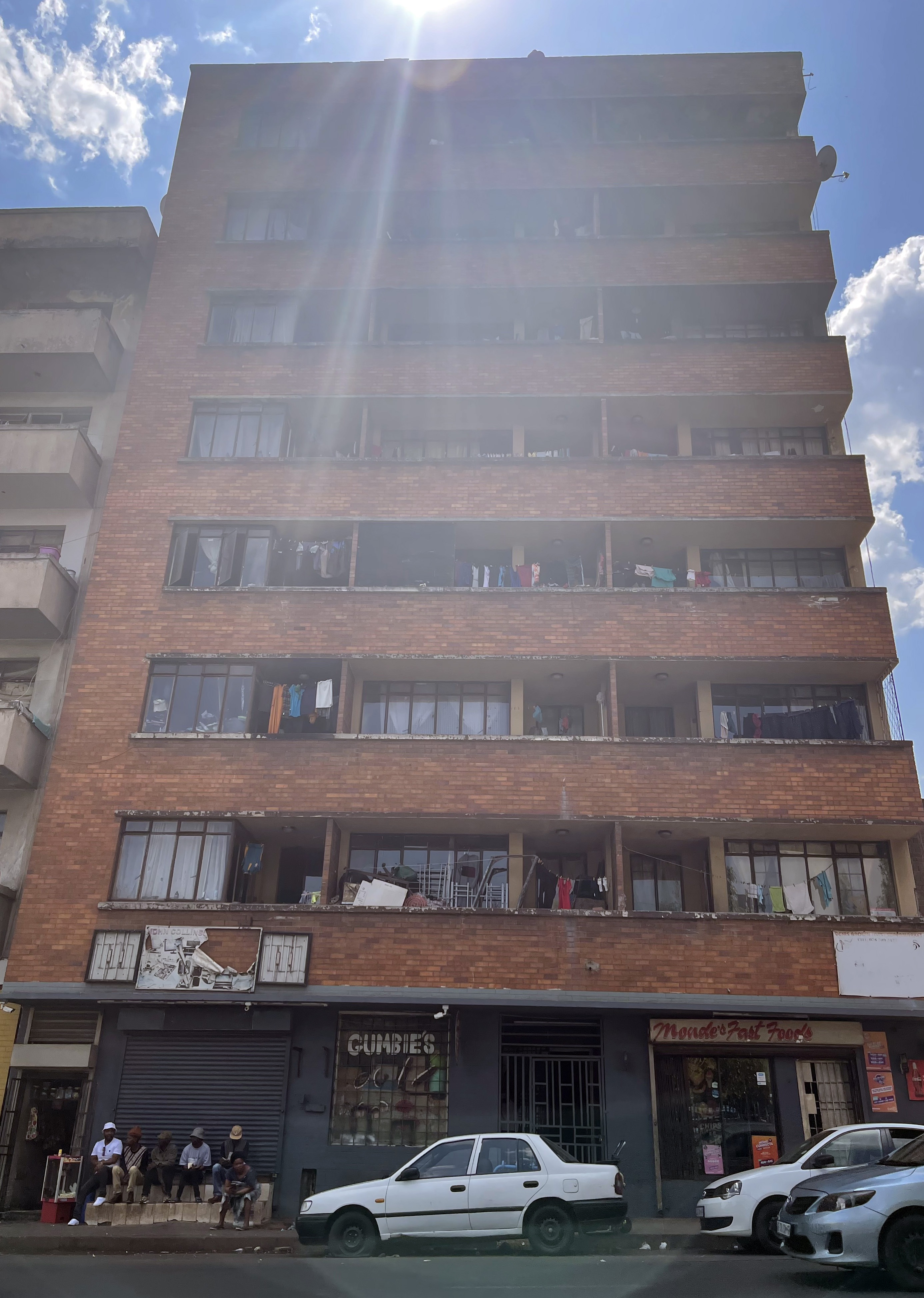
The city-owned building, Genlo Court, opposite Johannesburg’s Park Station. (Photo: Michelle Banda)
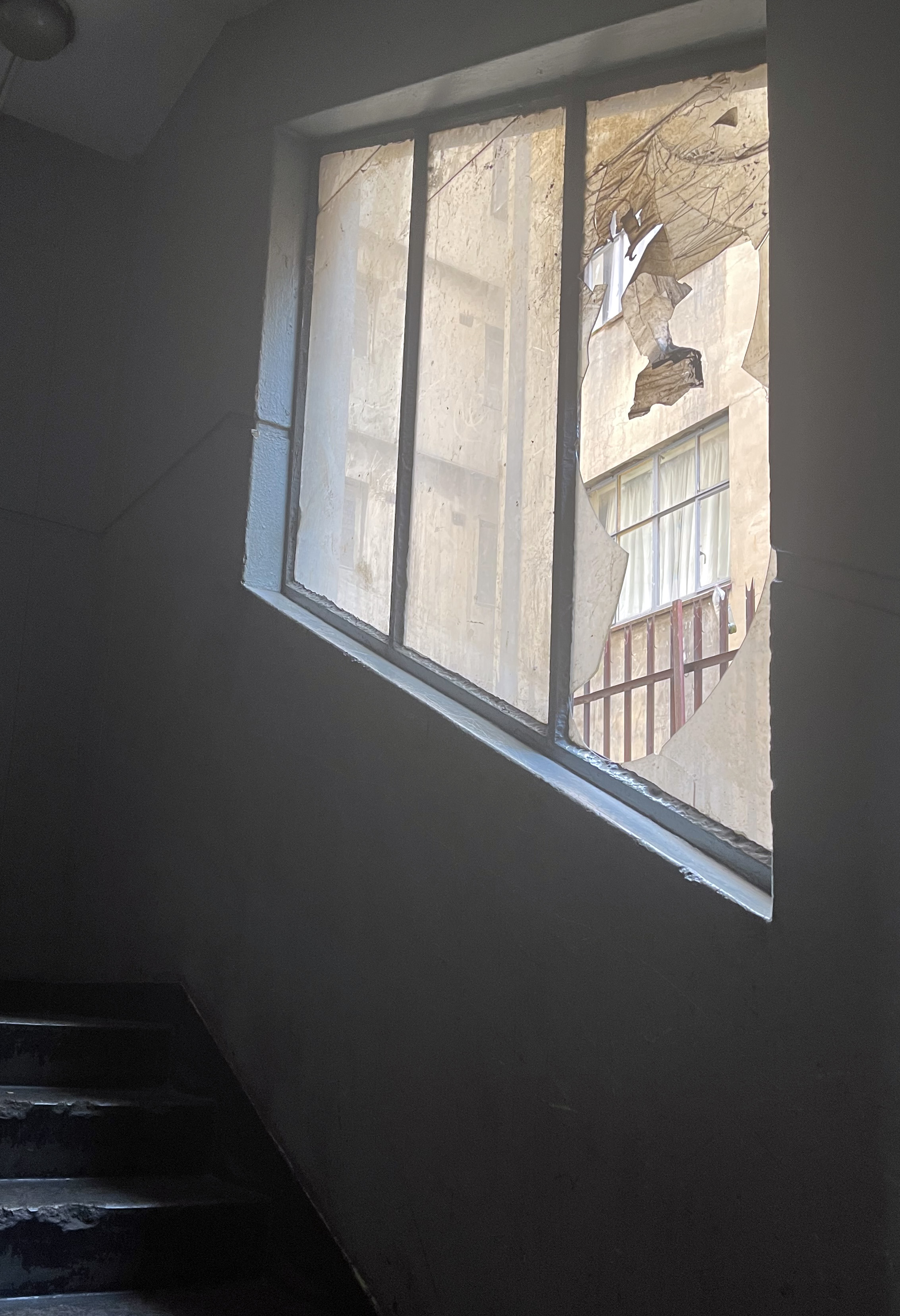
Broken windows inside a 21-unit city-owned abandoned apartment building. (Photo: Michelle Banda)
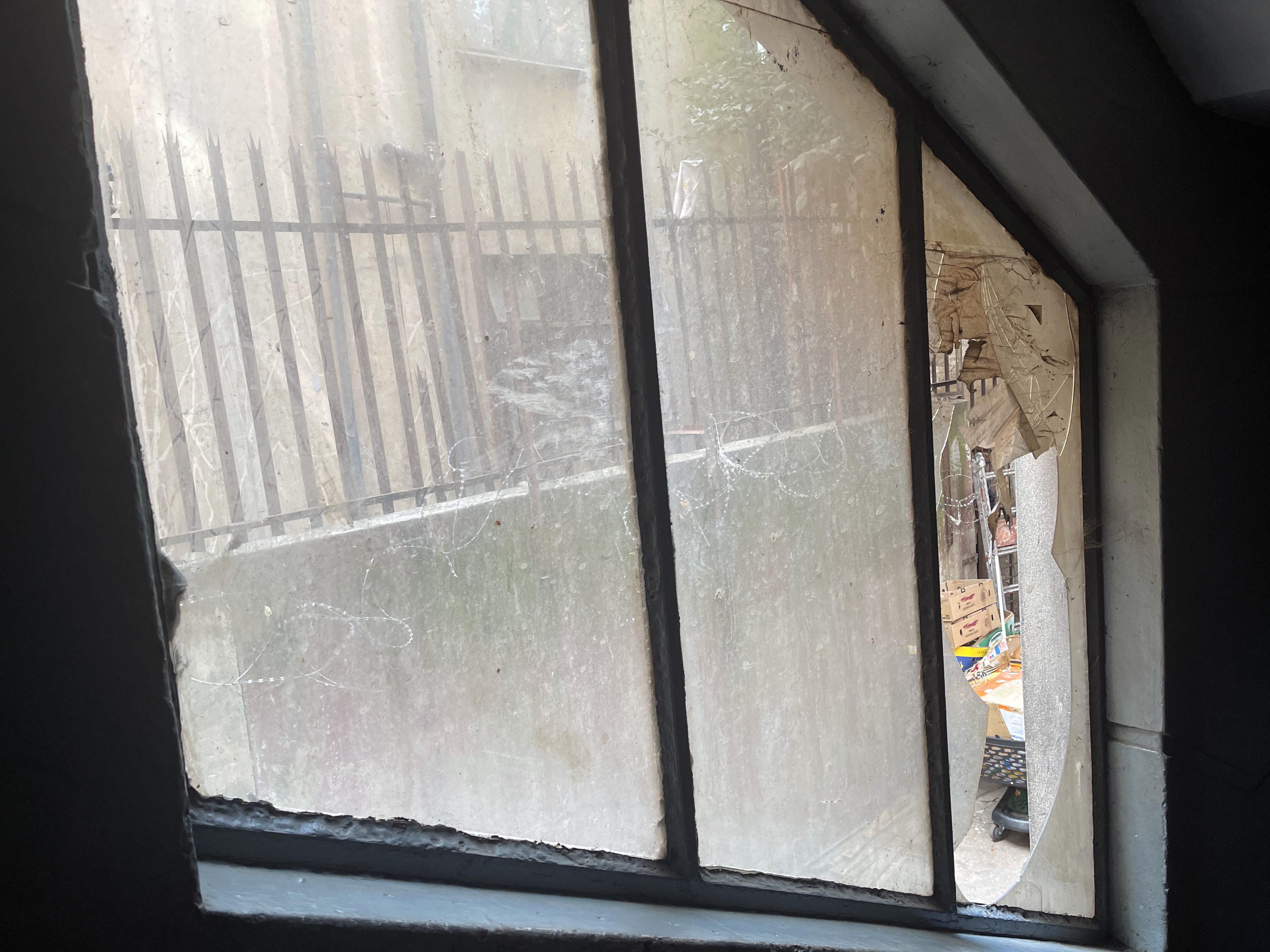
Broken windows inside a 21-unit city-owned abandoned apartment building. (Photo: Michelle Banda)
Bongeka Mboyiya, a resident at the city-owned Genlo Court building opposite Johannesburg Park Station, says she has lived on the property for close to 16 years. She claims that in that time the city has not done any maintenance nor provided basic services and slumlords posing as “building managers” have interchanged on a six-month basis to collect rent. Mboyiya says the building is one of the “abandoned” blocks whose owner the city could not trace and was taken over by city administration.
Legal avenues
Courts have played a vital role in the matter of hijacked or illegally occupied buildings in South African cities. The Blue Moonlight case in Johannesburg in particular made it clear that it is the role of cities to ensure that they provide affordable accommodation for inner-city residents.
Devoid of available, affordable and accessible shelter, many city residents have taken their shelter needs into their own hands, often illegally. This has led to evictions, now a common event in large cities like Johannesburg.
Visit Daily Maverick’s home page for more news, analysis and investigations
While the City of Johannesburg bears the responsibility of finding alternative shelter for those evicted, often these measures are temporary and or exclusive and do not resolve the growing urban housing crisis.
In her case study, Housing for the Poor, University of Cape Town scholar Carla Robb agrees that the reality most city dwellers face undermines their right to adequate housing. Robb suggests that access to decent homes in the inner city of Johannesburg is reserved for the income group while delivering accommodation options for the poorest of the poor remains “stark”. This is a breach of a constitutional right and the incumbent responsibility to take reasonable legislative and other measures within available resources to achieve the progressive realisation of this right by the city.
The National Housing Code (NHC) specifies the minimum size of houses as 40 square metres of floor area with:
- Two bedrooms;
- A separate bathroom with a toilet, a shower and a hand basin;
- A combined living area and kitchen space with a wash basin; and
- A ready-board electrical installation, where electricity supply is available.
These criteria are a luxurious dream for many low-income inner-city residents, as their norm is usually nothing more than a crowded, temporary, inadequate and illegal room.
What is City of Joburg doing about the inner city housing crisis?
In dealing with the ongoing battle for affordable inner-city housing, the City of Johannesburg established a social housing project — Johannesburg Social Housing Company SOC Limited (Joshco) — in November 2003.
Joshco is a registered social housing institution accredited by the Social Housing Regulatory Authority (Shra) of South Africa, mandated to provide and manage social and affordable rental housing for the lower-income market, as part of the city’s strategy to eradicate its housing backlog. It was established to serve families whose total household income is between R1,850 and R22,000 per month.
Unity House located at 10 Albrecht Street in Jeppestown is one of the city’s recently launched affordable housing projects for inner-city residents, with rentals ranging from R626 to R4,866 a month.
Joscho has pioneered a sustainable model of social housing in the inner city and surrounding areas, developed more than 8,825 rental housing units and set up homes for people in middle to low-earning segments. Units range from bachelor apartments to single and double-room flats with communal facilities, which have become home to many families, single parents, young working couples, professionals, students and the elderly.
However, this has also translated to a lack of formal housing delivery for the urban poor, specifically the “poorest of the poor” who live with inconsistent or no income. As a result of the exclusive social housing project, hundreds of inner-city residents who fell below the prescribed income bracket and do not meet minimum requirements — such as proof of income or payslip — have little option but to occupy buildings for the sake of survival.
If evicted, former occupants are usually transferred to the peripheries of the city or to an alternative address via Temporary Emergency Accommodation processes provided by the city, as prescribed by the law of evictions. But not everyone evicted can be moved to temporary accommodation.
This contradicts the City of Johannesburg’s Mayoral Priority 5, which speaks to integration and inclusivity and the city’s integration and spatial transformation agenda. It also contradicts the province’s policy which recognises that the effects of apartheid spatial policies are still clearly evident today and commits the province to work to undo this legacy.
Siyabonga Mahlangu says the ICF’s numerous efforts to engage with the city and its relevant departments on housing issues have been unsuccessful.
“We are often ignored, sometimes the city will tell us that they want to abide by the decisions of the court and choose to communicate with us through the courts. On some occasions, the city will respond by deciding to take some residents to court to seek an eviction order instead of seeking ways to assist them.”
The urban housing crisis for the low- and no-income group has also been heightened by the Covid-19 pandemic.
Read more in Daily Maverick: “A toxic broth: Covid, domestic violence, housing and homelessness”
Ineffective, heavy-handed alternative
Instead of dealing with this housing crisis and increasing options for low-income and no-income groups, the DA-led city administration is in an ongoing process of reclaiming “hijacked properties” across the city on behalf of their original owners in a bid to ensure that they can meaningfully participate in Johannesburg’s economy.
The city, with the help of the provincial management of SAPS, the National Prosecuting Authority, Asset Forfeiture Unit, and Home Affairs also employs the “Shock and Awe” doctrine. This is a military tactic using power and a display of force to basically scare the “enemy” into inaction.
Reclaiming in this case is more about tracking down the original owners of hijacked buildings and getting them to manage their properties and cough up any arrears than it is about helping desperate people attain a basic constitutional standard of living.
This consequently makes little impression on the 500,000-strong housing backlog and breeds further homelessness in Joburg. In an interview with City Press in June, Housing MMC Mlungisi Mabaso said Joburg’s housing backlog will take 100 years to deal with.
Mabaso blamed a lack of resources in the housing department for the housing crisis in the city.
“Human settlement is a concurrent function of the province and national government…. The R1-billion we get from the urban settlement development grant is not sufficient when you are dealing with a backlog like ours,” he said.
Without a realistic strategy to deal with the urban housing crisis for the low-income residents in Johannesburg’s inner-city buildings, hijackings and homelessness are set to continue, further affecting the livelihoods of inner-city dwellers across all sectors.
Daily Maverick asked the City of Johannesburg to respond to allegations on issues of lack of service delivery in the inner city, Joshco criticism and being heavy-handed in dealing with issues relating to vulnerable groups occupying abandoned or hijacked buildings.
Thabile Mbhele, in the Office of the Housing MMC, sent this response:
DM
Daily Maverick will keep track of housing issues for low-income Johannesburg inner city residents. This is part one of a two-part series.


















 Become an Insider
Become an Insider
Comments - Please login in order to comment.